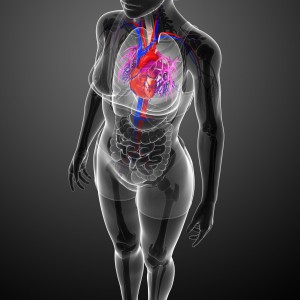 A team led by researchers at the Ankara University School of Medicine in Turkey recently published in the journal International Angiology their findings regarding the aorta’s artery status in female fibromyalgia patients. The study is entitled “Evaluation of aortic elastic properties in patients with fibromyalgia.”
A team led by researchers at the Ankara University School of Medicine in Turkey recently published in the journal International Angiology their findings regarding the aorta’s artery status in female fibromyalgia patients. The study is entitled “Evaluation of aortic elastic properties in patients with fibromyalgia.”
Fibromyalgia is characterized by widespread chronic musculoskeletal pain, fatigue, stiffness and numbness in certain parts of the body, headaches, sleep disorder and mood alterations. This disorder can affect people’s ability to conduct simple daily tasks, compromising their quality of life. Women are more likely to develop this disorder than men.
Sympathetic activity refers to the body’s unconscious preparation and adaptation to an action activity, like an increase in the heart rate, release of sugar from the liver into the bloodstream, and other so called “fight-or-flight” responses. It is known that a chronic high sympathetic activity can cause negative cardiovascular responses in patients with fibromyalgia.
In this study, the elastic properties of the aorta, the main artery in the human body, were assessed in patients with fibromyalgia. Researchers analyzed 112 women with fibromyalgia and 50 healthy control women. The patients were divided into two categories depending on disease severity: severely symptomatic patients (group A) and less symptomatic patients (group B). The elastic properties of the aorta, like the aortic distensibility index (referring to the capability of swelling or stretching of the aorta) and aortic stiffness index (referring to the arterial stiffness as a consequence of aging or other conditions) were defined by pre-determined formulas.
Researchers found that the aortic distensibility index was considerably lower in patients from group A in comparison with patients from group B or healthy controls. On the other hand, the aortic stiffness index was substantially higher in group A patients compared to group B and healthy controls.
The team concluded that the elastic properties of the aorta artery are compromised in female patients with severely symptomatic fibromyalgia. An impaired aortic distensibility index and an increased aortic stiffness index are both associated with a higher risk of cardiovascular events such as myocardial infarction and stroke, suggesting that women with severe fibromyalgia are more prone to suffer such cardiovascular incidents.

